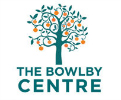Access to Psychotherapy
Historically psychotherapy has been available to people who are ‘psychologically minded’ and considered to be ‘well’ enough to respond to treatment. Clients with psychiatric diagnoses are often deemed unsuitable for treatment. However, The Bowlby Centre psychotherapists work successfully with people who have been given diagnostic labels such as obsessive compulsive disorder, psychosis, borderline personality disorder and dissociative disorders. We are doing pioneering work with many other groups traditionally excluded from psychotherapy. For example, our work with addictions challenges the widely held belief that treatment can only begin after the client ceases substance abuse. We also work with people with significant learning disabilities.
Research undertaken by MIND has identified that black and ethnic minority communities are disproportionately excluded from talking therapies, and mainstream psychodynamic psychotherapy in particular. This is borne out by a government study, which came out on 11.1.2005, revealing that people from black and ethnic minority communities are less likely to be offered talking therapies than their white counterparts. The Bowlby Centre is working to reduce this disadvantage by promoting a more inclusive approach in our work.
The losses and traumas addressed by attachment-based psychodynamic psychotherapy are not confined to the private world or early life. Groups and society as a whole shape attachment relationships formed by individuals. Experiences of abuse and loss, as a result of the ways in which society is structured, cannot be split off and left as a problem, separate to those with which therapy concerns itself. The individual’s experience in relation to ethnicity, culture, gender, sexuality, class, age and disability can be worked with in a profound way through attachment-based psychotherapy. The Bowlby Centre works with clients, including many immigrants, who have lost their family, community, language, culture and country of origin. Many people struggle against discrimination, racism, poverty and intolerance. Understanding this may be an integral part of therapy.
Psychotherapy has most readily been accessed by those who can, crucially, afford to pay for private care. Yet nearly a quarter of London’s households – that’s households, not individuals – exist on a gross weekly income of £200, more than 10% on a gross weekly income of £100 (London Councils, Key Facts). We know many of these are the people who most need psychotherapy and least likely to have access to it.
We have launched an innovative mental health project called The Blues Project to provide long-term, low cost attachment based psychotherapy to people who are usually excluded from talking therapies. With this project we aim to influence the future of thinking about mental distress, within the fields of mental health and psychotherapy as well as in the wider community, in order to promote attachment and inclusion.
